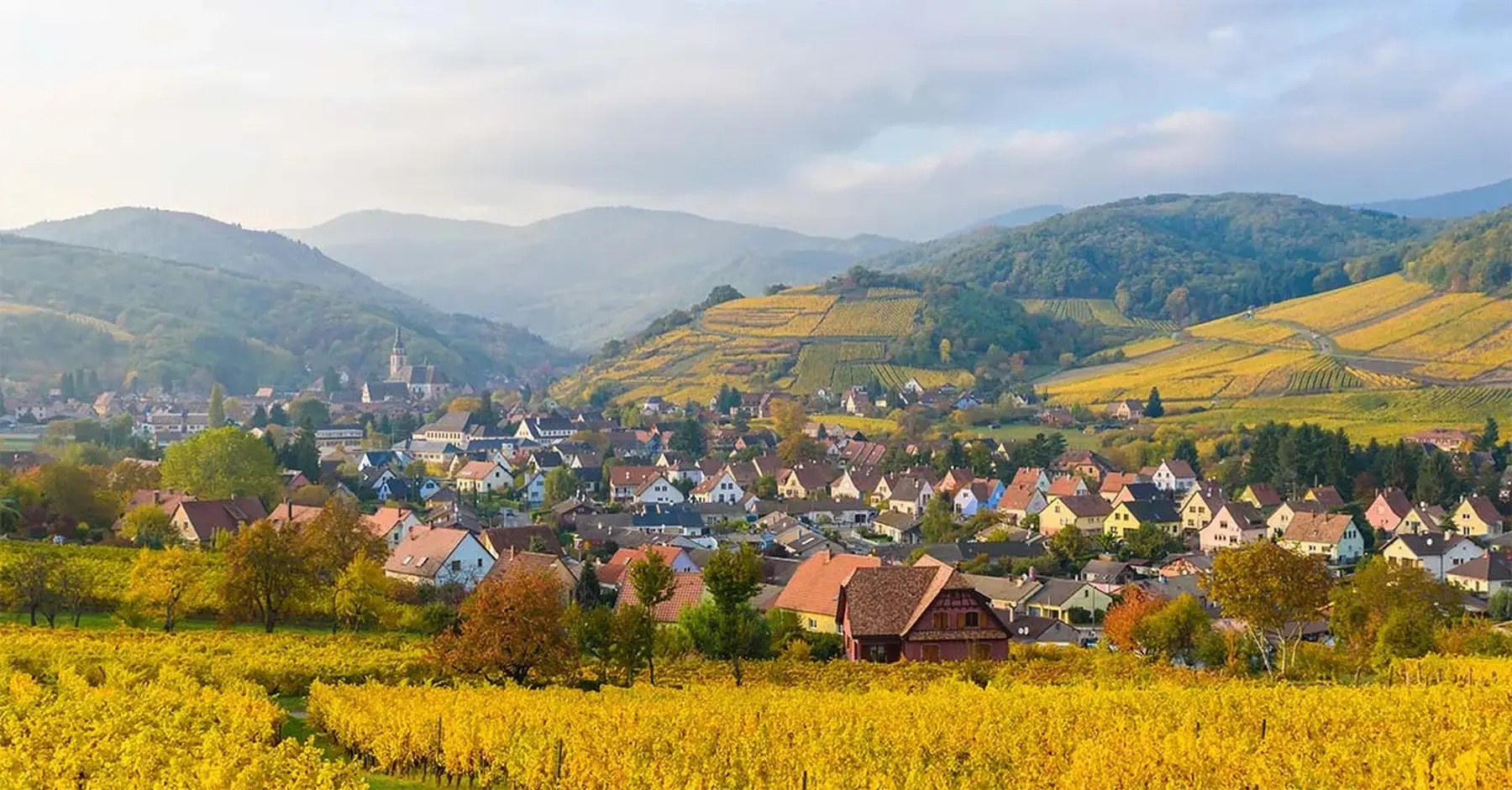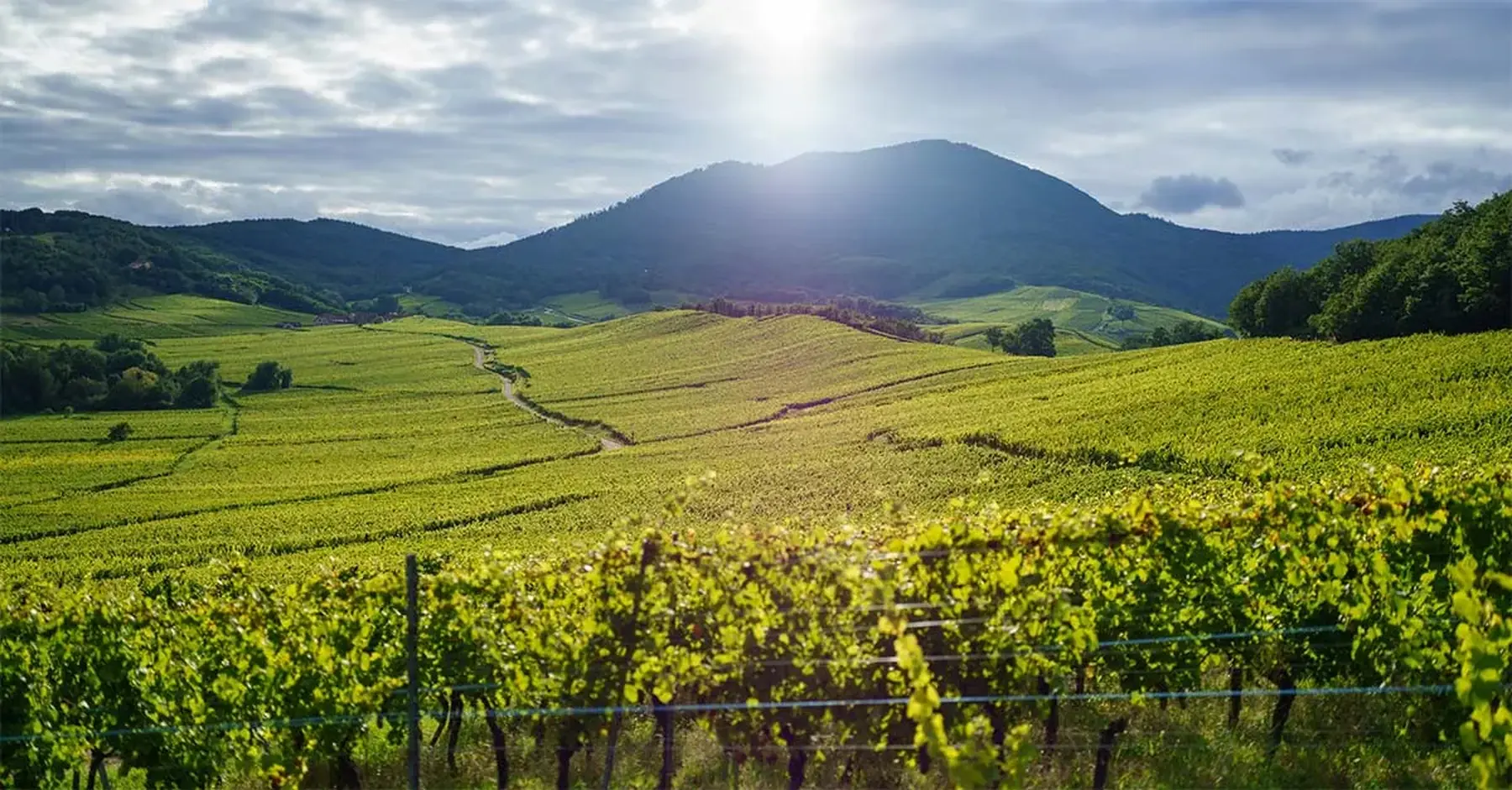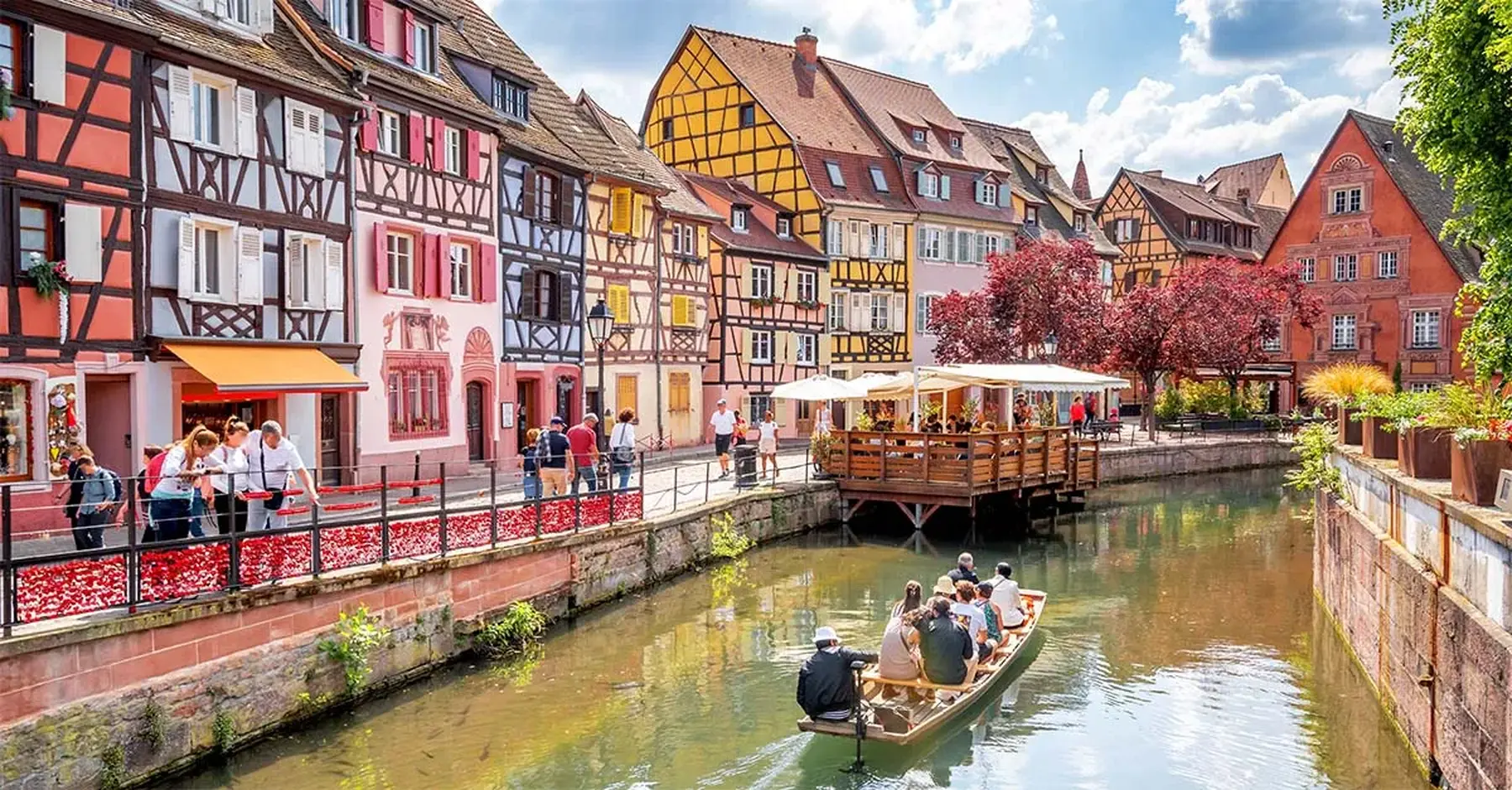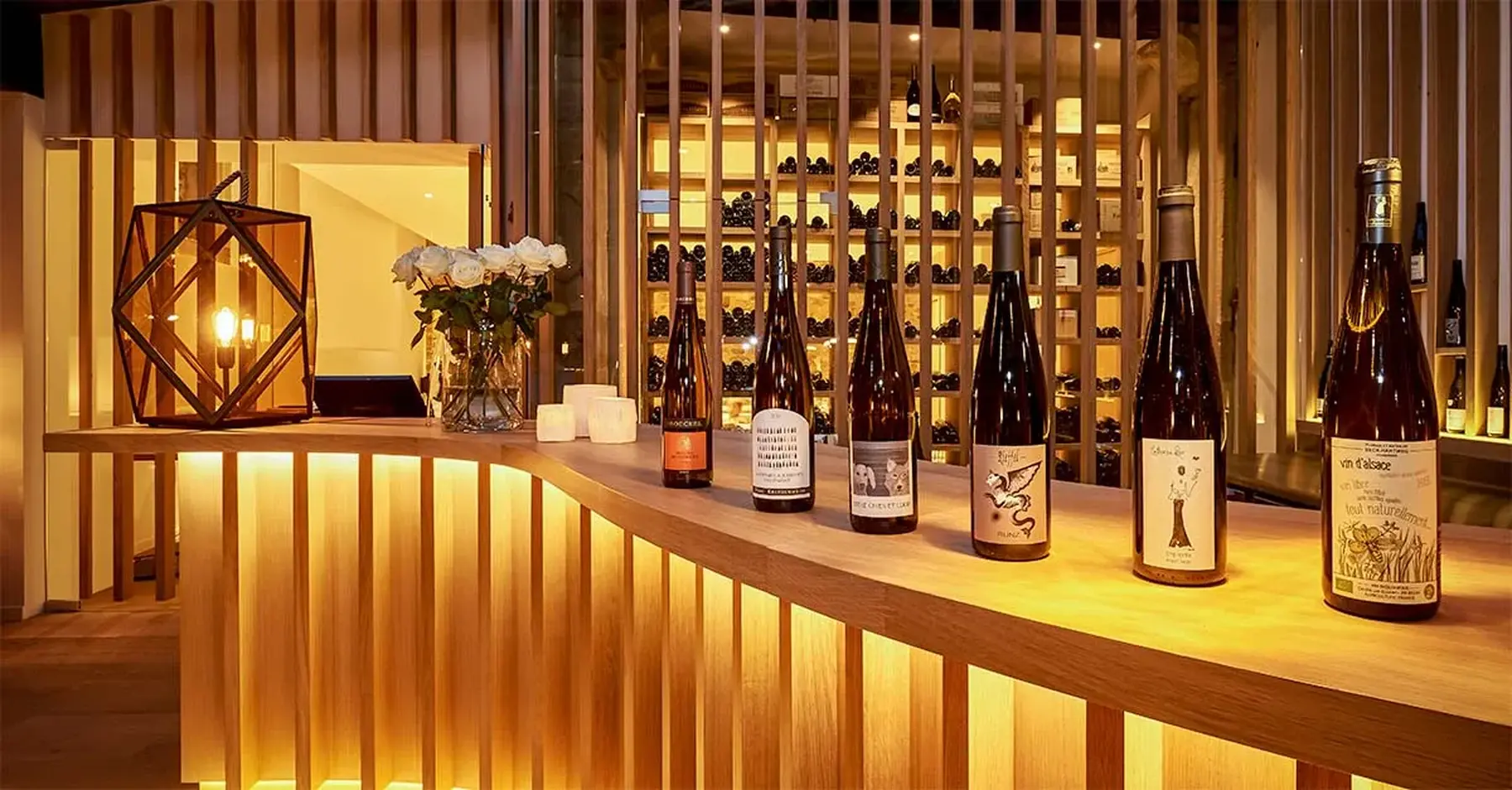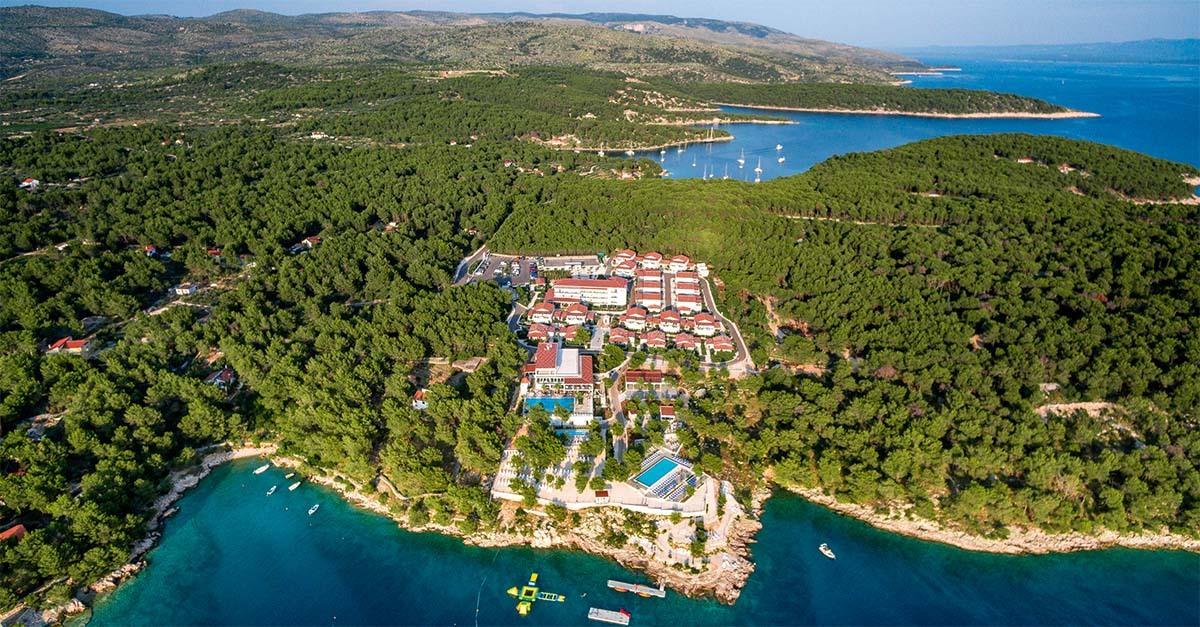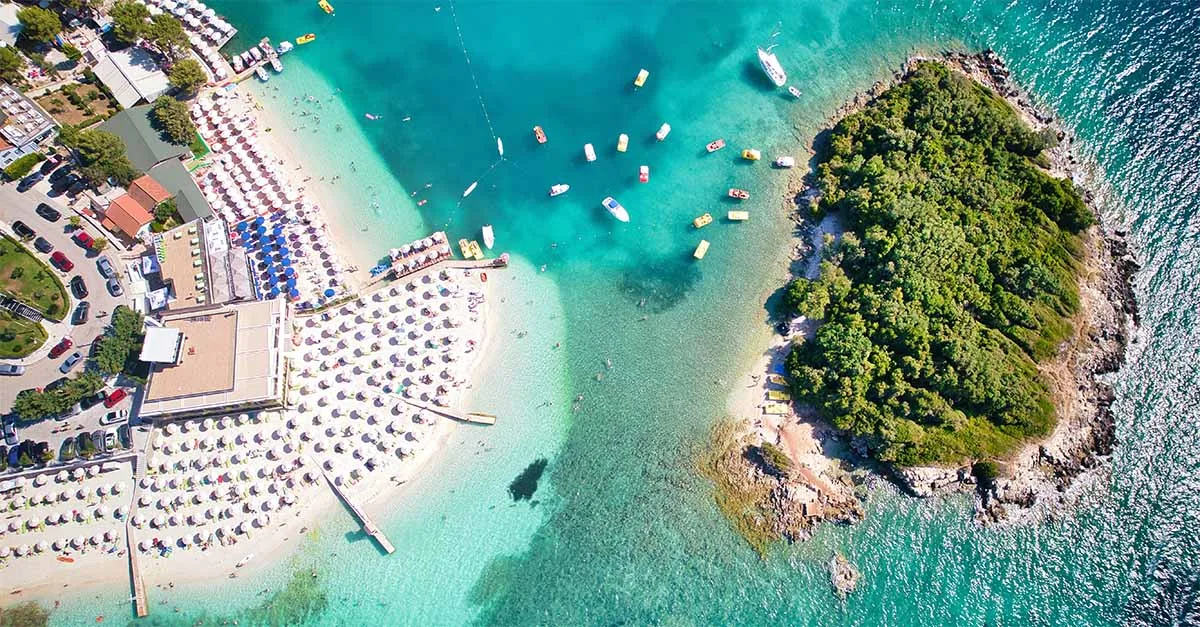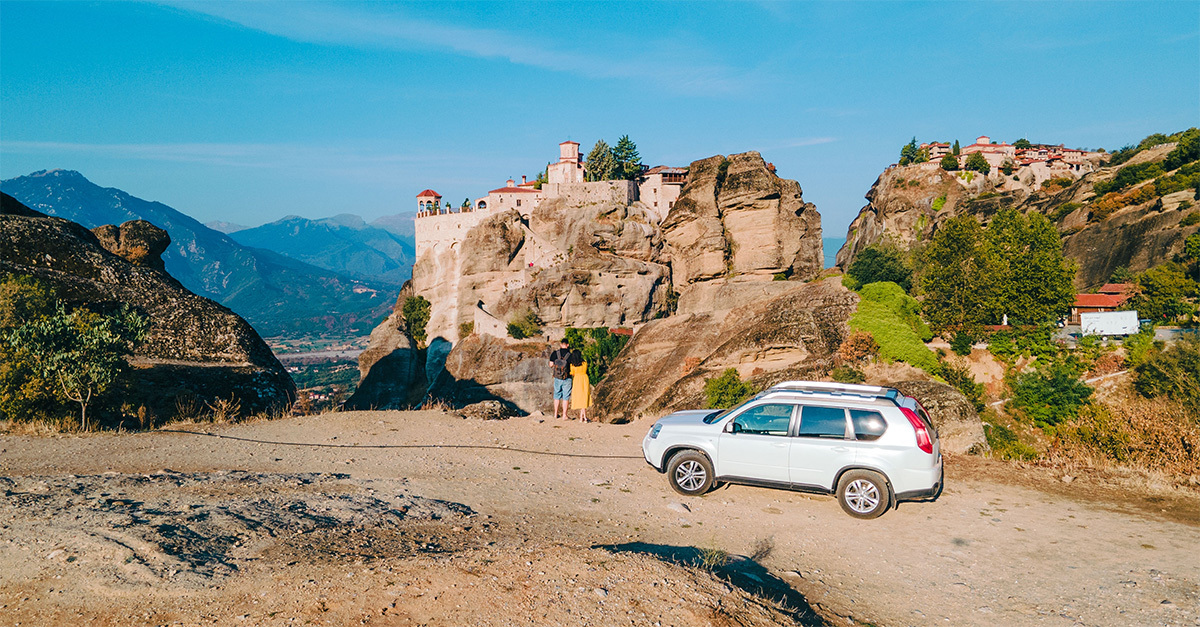You are viewing 1 of your 2 free articles
Our guide to Alsace, from wine trails to fairytale towns
Discover a more peaceful alternative to better-known grape-growing regions with a tour of France’s oldest wine route
Click here to download and save as a PDF
There are no prizes for guessing the number-one industry in the small Alsatian town of Barr, just half-an-hour’s drive west of France’s border with Germany. At the end of each steeply sloping, cobbled street – beyond the half-timbered houses that look like they’ve sprung to life from a Brothers Grimm fairytale – vineyards stretch up high on a hill behind the town, like a lush, living wall.
Some 230 miles east of Paris, Barr is just one of 119 wine-growing towns in the area. Back in 1953, the Alsace tourist board cottoned on to the fact that they might have something that could be of interest to visitors and created what is now France’s oldest wine route.
Unlike the superstar wine regions of Bordeaux and Burgundy, however, which attract tourists in their millions every year, Alsace’s Wine Route is still relatively unexplored.
A vineyard near Barr. Image credit: Alsace Tourism/Bartosch Salmanski
What to see in Barr and Mittelbergheim
The only other people I passed in Barr, albeit on a rather damp afternoon, were a handful of locals chatting on one of the town’s pretty squares and an elderly lady lovingly tending to the geraniums in her window box.
Even my accommodation, the chic 5 Terres Hotel & Spa, part of the Accor-owned MGallery Collection, wasn’t overly busy. Its name draws on Alsace’s five types of terroir, the combination of soil and climate that gives each area’s wine a unique character.
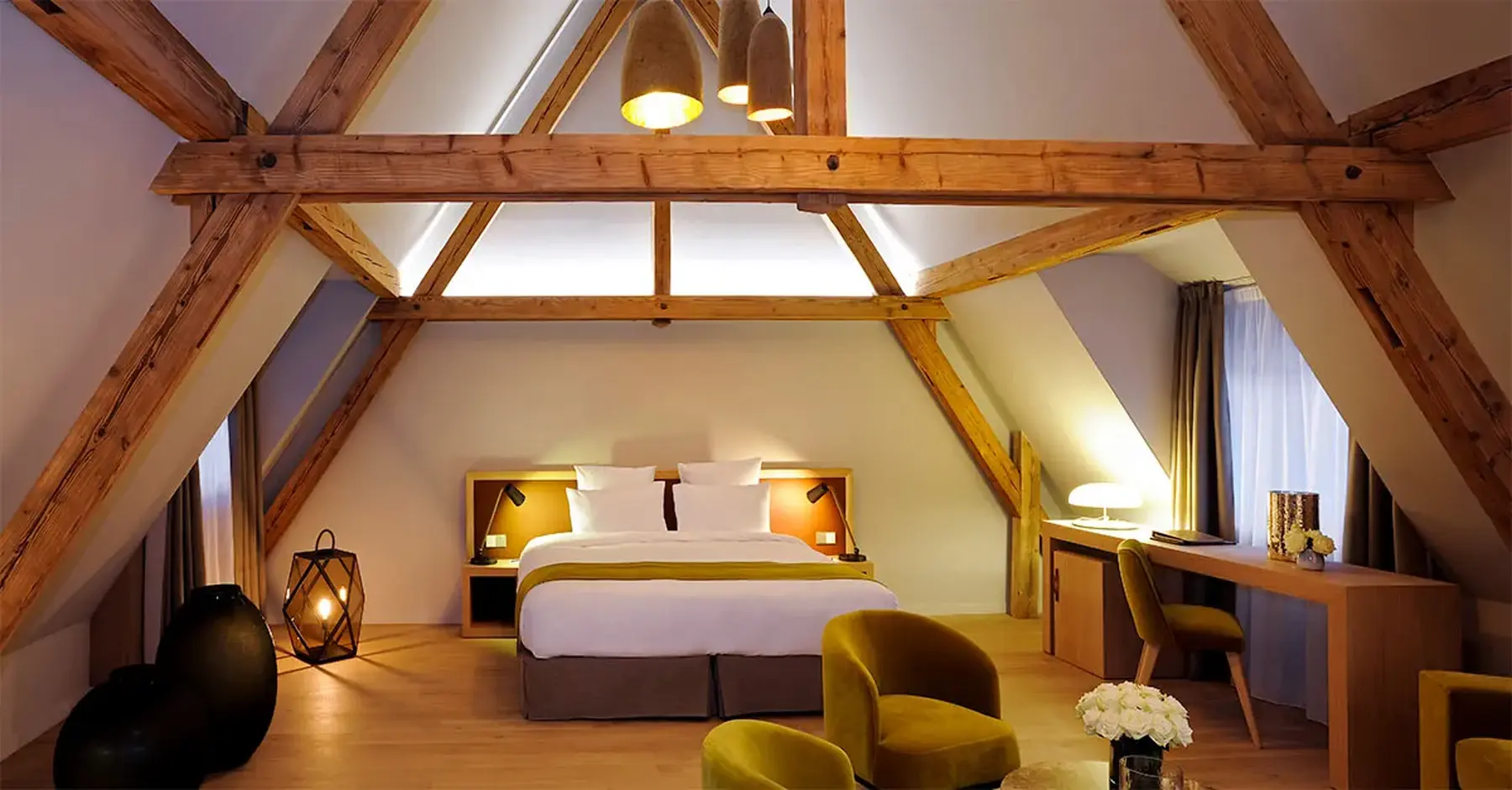
A bedroom at the 5 Terres Hotel & Spa. Image credit: Serge Lohner
It was a similarly sleepy story in the wine-growing village of Mittelbergheim, just five minutes’ drive south, which was surprising given it has been voted one of France’s most beautiful villages.
Sitting high on a headland amid even more vineyards, like Barr, Mittelbergheim’s handful of streets were lined with wooden-shuttered, 16th-century houses in shades of dusky pink and primrose yellow with swirling, black ironwork shop signs jutting out from the facades.
I had come to visit Boeckel, one of the many wineries in the village (tours and tastings €20-€25).
In between giant wooden barrels in the cellar and the pleasantly musty aroma of wine and oak, owner Thomas Boeckel explained that they have been making wine in his family for 500 years, as I tasted wines including a deliciously mellow, floral gewurtztraminer.
A canal in Colmar’s old town. Image credit: Shutterstock/Sina Ettmer Photography
Where to go in Colmar
In fact, wine-making in the Alsace region dates back to Roman times, a history that enthusiastic oenophiles can delve into at the fascinating Wine Museum (admission €15) in the nearby town of Colmar, with interactive displays and holograms to bring the wine story to life.
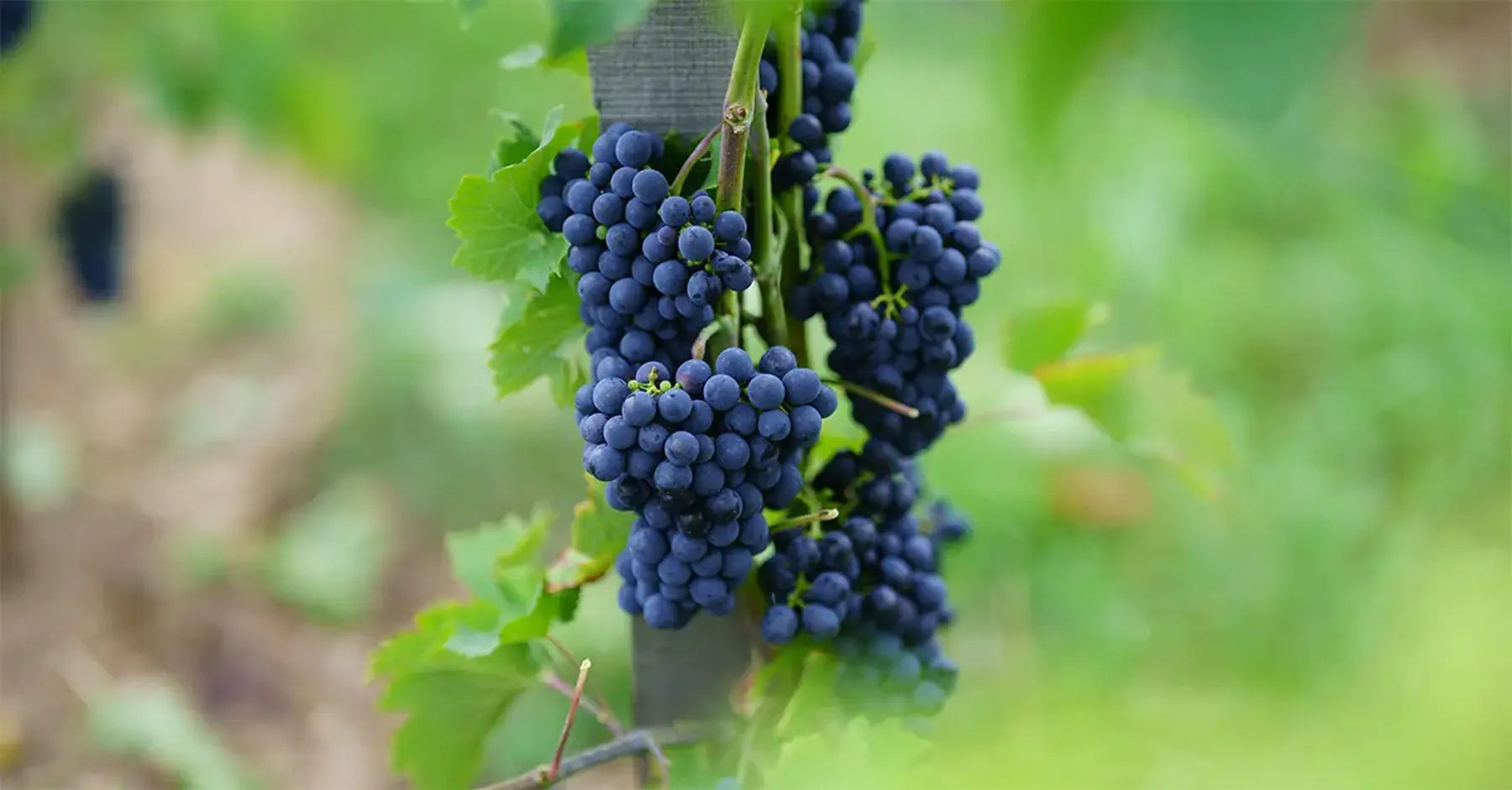
Grapes growing on a vine. Image credit: Alsace Tourism/Bartosch Salmanski
Wine, however, is not Colmar’s only claim to fame. The town’s photogenic ‘Little Venice’ area, filled with canals and bridges and lined with half-timbered houses, was supposedly the inspiration for the 18th-century French village in Disney’s 1991 animated film Beauty and the Beast. Others come for the 12m-high replica of New York’s Statue of Liberty, which stands on the edge of town in homage to its creator, sculptor Frédéric Bartholdi, who was born in Colmar.
At the town’s Unterlinden Museum (admission €14), I found not only works by Picasso, Rodin, Renoir and Monet, but also the renowned ‘Isenheim’ altarpiece, widely considered to be one of the masterpieces of 16th-century art.
Perhaps unsurprisingly given its many draws, unlike in Barr and Mittelbergheim, I was no longer the lone tourist in town.
Visitors from Japan, Italy and other regions of France sat alongside as the Petit Train Touristique (tickets €7.50) – the kind of small tourist train common to many French towns – whisked me past Gothic and Renaissance churches, gabled facades, medieval buildings and clusters of shops selling local wines and souvenirs.
After a night at the glamorous L’Esquisse Hotel & Spa, just five minutes’ walk from the city centre, the final stop on my Alsace tour was the region’s capital city and seat of the European Parliament, Strasbourg, an hour’s drive north.
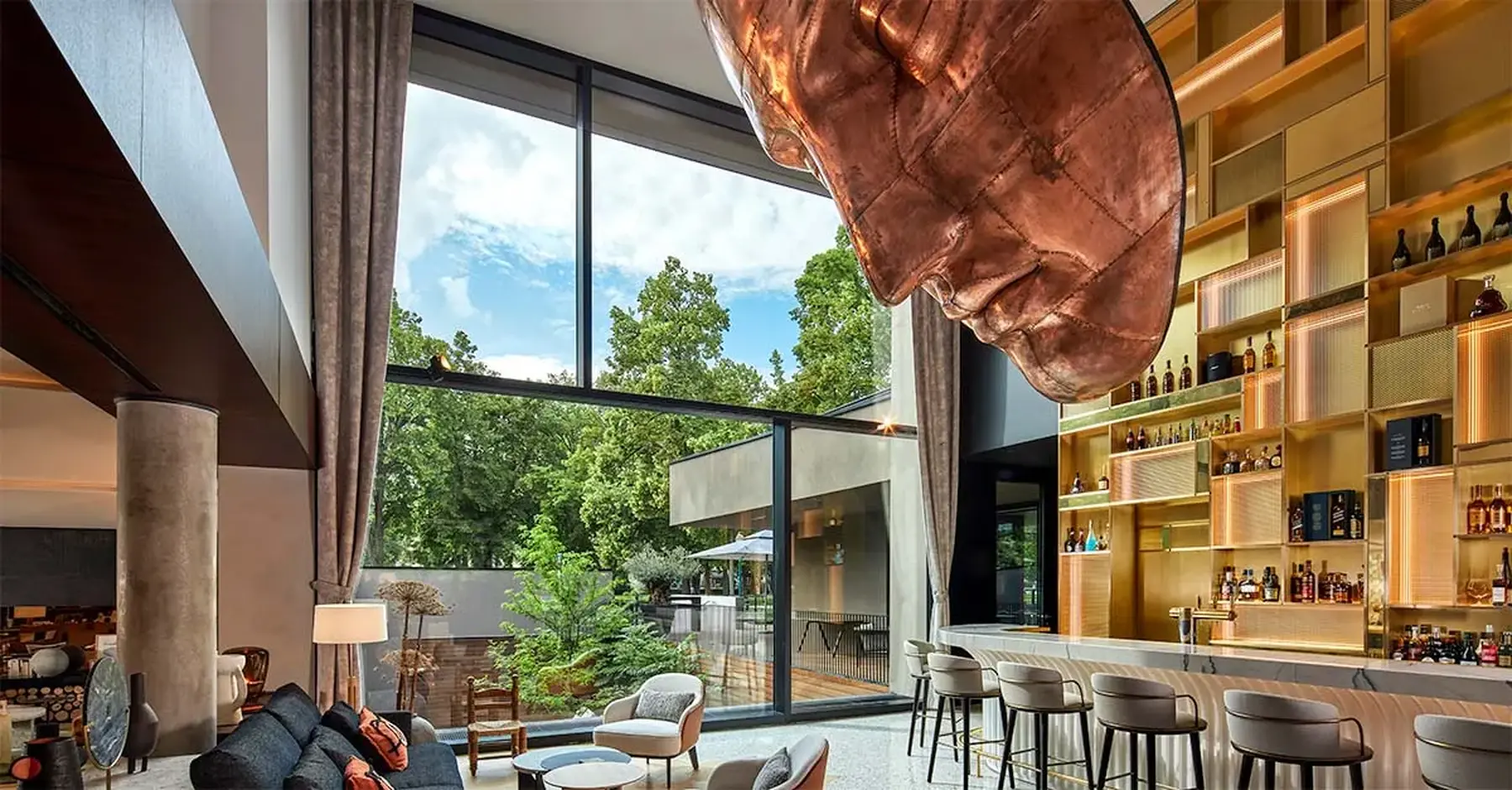
L’Esquisse Hotel and Spa lobby. Image credit: David Grimbert
Built along the banks of the River Ill, Strasbourg was a larger, livelier version of the smaller towns I had already visited. There were the same, obligatory half-timbered houses but also grand squares and a hugely impressive cathedral with a 142m-high Gothic spire.
It was tempting to stay and explore, but I had a train to catch and time only for a brief raid on the shops for a souvenir to take back with me. What could sum up the most enduring memory of this underrated region? A bottle of Alsatian wine, of course.
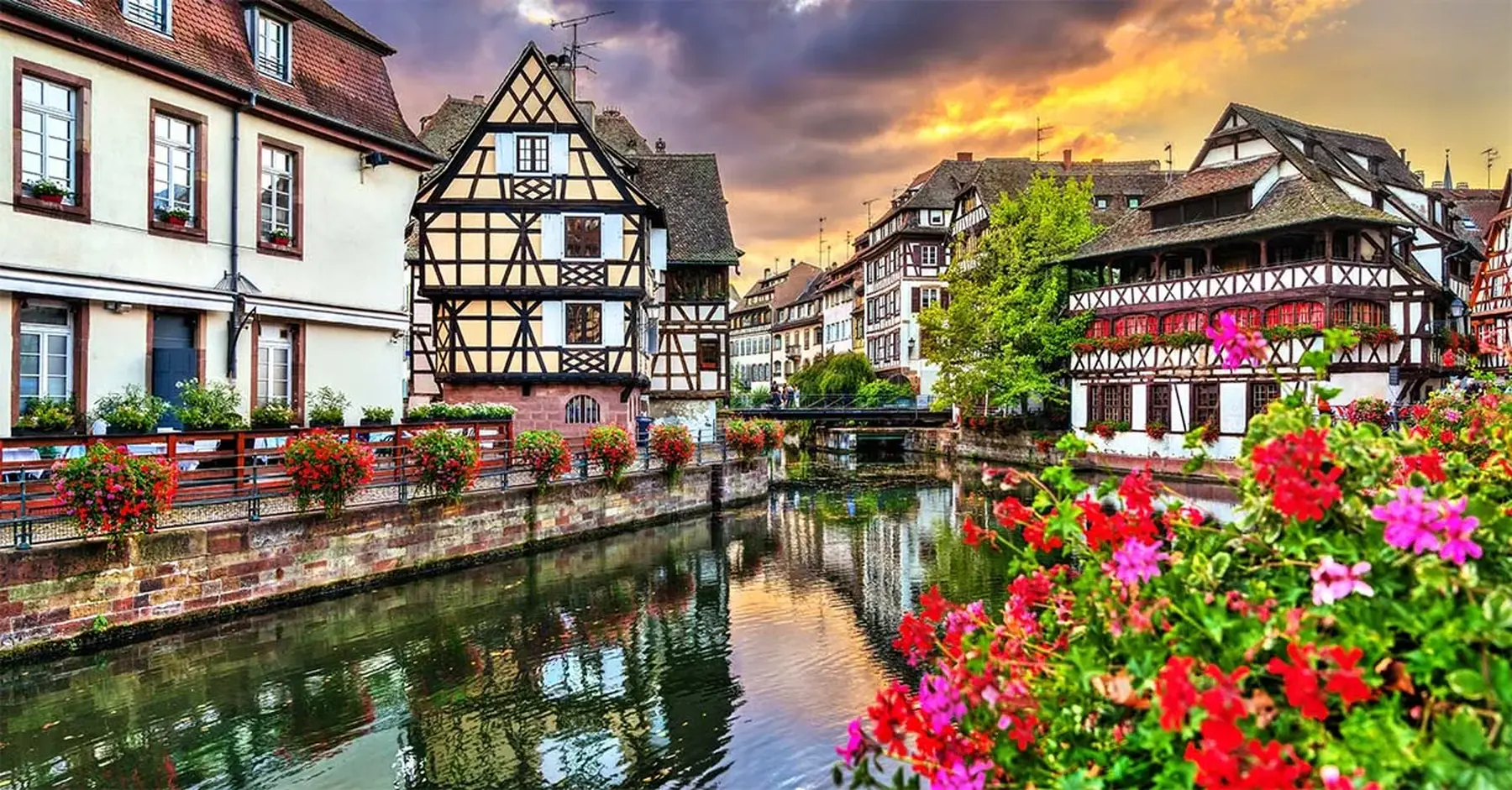
Strasbourg, France. Image credit: Shutterstock/Leonid Andronov
How to reach Alsace from the UK
Eurostar has return train tickets from London St Pancras to Paris from £78 return. Transfer from Gare du Nord to Gare de l’Est (a 10-minute walk or short taxi journey) then take the high-speed train to Colmar (two hours, 20 minutes) or to Strasbourg (one hour, 45 minutes) with onward train to Barr.
eurostar.com
Where to stay in Alsace
Image credit: Serge Lohner
5 Terres Hotel & Spa, Barr
Stylishly converted from a cluster of 16th-century buildings, this 27-room MGallery Collection hotel overlooks the half-timbered buildings of a pretty square. Beamed ceilings hint at the hotel’s heritage, but elsewhere the decor has a contemporary vibe along with tan leather armchairs and black-and-white photographs.
There’s an excellent restaurant and a spa, plus wine tastings in the hotel’s well-stocked cellar. Rooms from £180 room-only.
L’Esquisse Hotel & Spa, Colmar
Set within a pretty, tree-filled park less than 10 minutes’ walk from the town centre, the modern, 62-room L’Esquisse Hotel & Spa – MGallery Collection exudes glamour. Rooms are spacious and elegant with parquet flooring and contemporary decor.
There’s also a spa and a two-Michelin-starred restaurant, the brainchild of star local chef Jean Yves Schillinger. Rooms from £225 room-only.
mgallery.accor.com
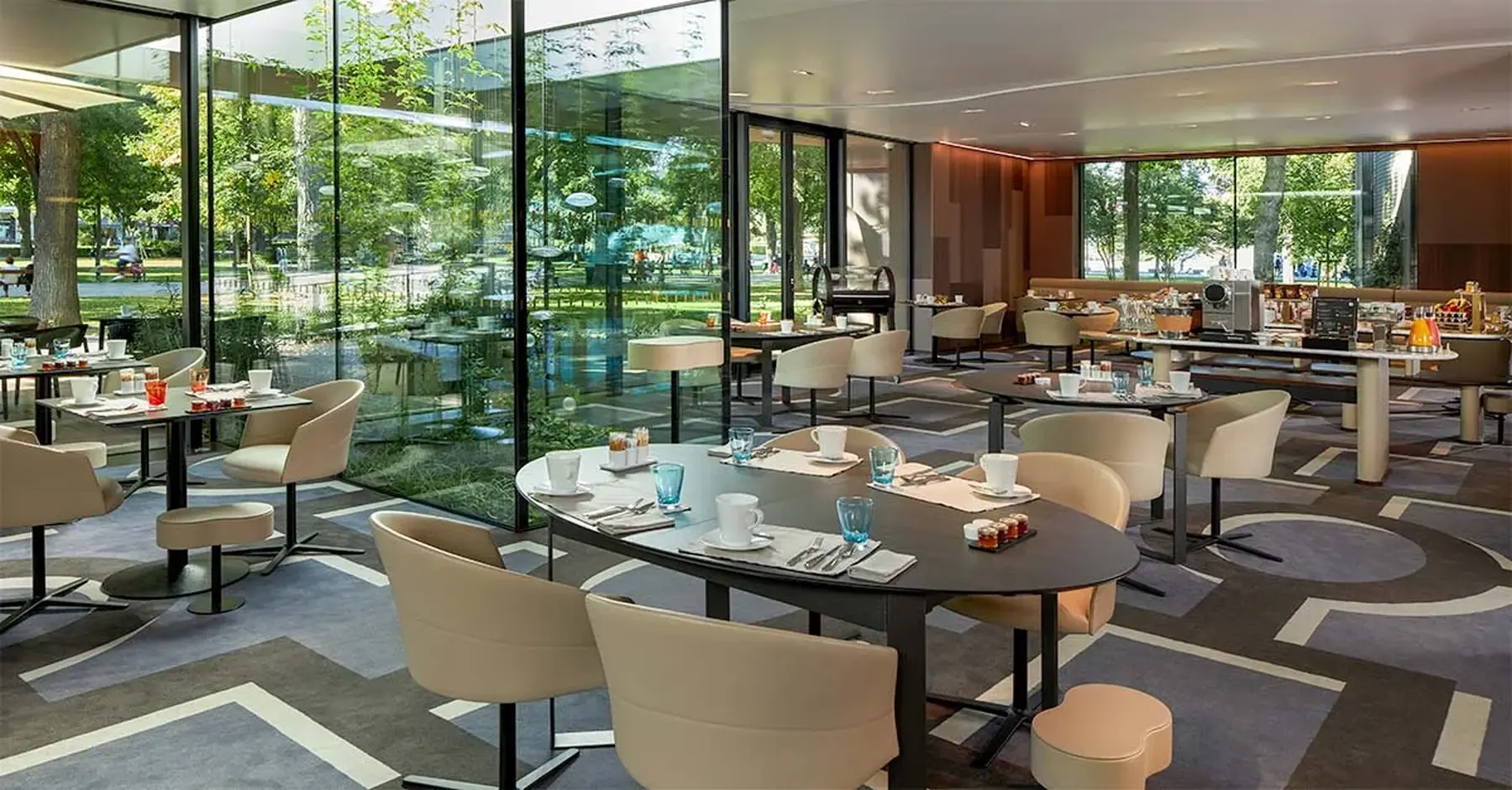
Image credit: David Grimbert
Lead image credit: Shutterstock/Simon Dannhauer

